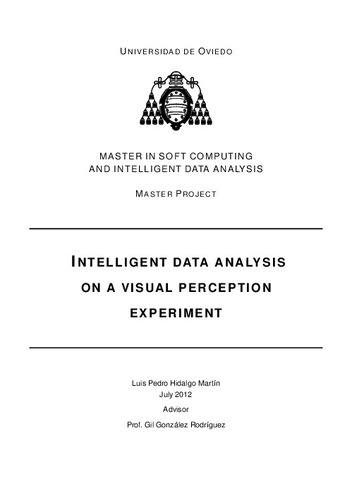Intelligent data analysis on a visual perception experiment
Autor(es) y otros:
Director(es):
Palabra(s) clave:
Fuzzy Data
Random Experiment
Supervised Classification
Nonparametric Density
Compositional Data
Fecha de publicación:
Serie:
Máster Universitario en Soft Computing y Análisis Inteligente de Datos
Resumen:
This thesis deals with supervised classification of fuzzy data obtained from a random experiment. The data generation process is modeled using three approaches. First, a naive direct multivariate method which treats the data as is. Second, a compositional data transformation that views data as points in a Simplex space. Finally, we also employ an algorithm that relies on random fuzzy sets. The first two approaches have been tested on a classical setting of supervised classifiers. The fuzzy approach has been tested on a custom family of classifiers for fuzzy data. Two of the fuzzy algorithms are novel contributions. The empirical test consists on two experiments. One concerning fuzzy perceptions and linguistic labels, and the other concerning fuzzy perceptions and the gender of the individual that generated the perceptions.
This thesis deals with supervised classification of fuzzy data obtained from a random experiment. The data generation process is modeled using three approaches. First, a naive direct multivariate method which treats the data as is. Second, a compositional data transformation that views data as points in a Simplex space. Finally, we also employ an algorithm that relies on random fuzzy sets. The first two approaches have been tested on a classical setting of supervised classifiers. The fuzzy approach has been tested on a custom family of classifiers for fuzzy data. Two of the fuzzy algorithms are novel contributions. The empirical test consists on two experiments. One concerning fuzzy perceptions and linguistic labels, and the other concerning fuzzy perceptions and the gender of the individual that generated the perceptions.
Colecciones
- Indurot [170]
- Trabajos Fin de Máster [5284]
Ficheros en el ítem





